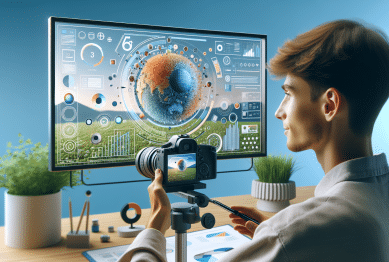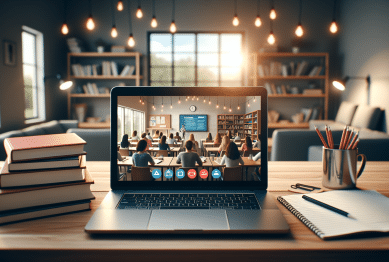Lifelong learning shapes both careers and personal lives in surprising ways. Explore how embracing online courses, digital literacy, and open education can boost opportunities, adaptability, and social ties in a rapidly changing world.
Lifelong Learning and Modern Career Mobility
Lifelong learning is no longer just a buzzword—it’s a vital strategy for thriving in modern workplaces. The job market changes fast. Many employers look for workers who continually upgrade their skills. Online courses and microcredentials have become central to career mobility, letting people learn new technologies or management techniques without leaving their current positions. These flexible options make lifelong learning more accessible than ever, fostering a culture where adaptability drives opportunity and competitive advantage in any sector.
Formal education still matters, yet many fields value ongoing professional development and upskilling even more. With new certifications available for skills like digital literacy, data analysis, or remote collaboration, professionals can pivot toward fast-growing industries. This trend transcends traditional barriers—age, background, or previous education no longer restrict entry. Investing in these new learning pathways can open more doors than a single degree ever could, making ongoing education a key asset for both young adults and seasoned employees seeking fresh opportunities.
The rise of lifelong learning benefits more than just individuals. Companies benefit from investing in their teams’ continuous development, as knowledge workers trained in the latest tools and strategies push projects further. Some businesses even subsidize courses or host digital learning platforms in-house, ensuring their workforce stays relevant. For those planning career shifts or seeking growth in a volatile economy, educational agility makes all the difference—an advantage increasingly supported by modern hiring practices and professional networks.
Digital Literacy as a Foundation for Participation
Digital literacy is about more than using computers—it’s about understanding, communicating, and creating in a digital world. Schools and universities now consider it an essential skill, ranking alongside reading and mathematics. With much of today’s education, commerce, and social life taking place online, those comfortable with digital platforms can access more resources and participate fully in civic and professional life. Learning to code, analyze information, and recognize online risks prepares students and adults alike for safe, empowered digital citizenship.
As more services become digital by default, the digital divide persists. Not everyone enjoys equal access to technology or training. Initiatives like community computer labs, library internet programs, and public online courses aim to make digital literacy universal. Being able to search for jobs, manage finances, or access health information online is transformative. For older adults especially, digital inclusion supports independence and ongoing engagement with family, friends, and services.
Promoting digital literacy isn’t only about technical skills. It builds critical thinking, supports media literacy, and encourages responsible online presence. In an era of growing misinformation, people who can assess information credibility are less likely to fall victim to scams or hate speech. Empowering more people to navigate the web safely and ethically ensures stronger, more resilient communities—both locally and globally.
The Impact of Open and Online Education
Open education broadens learning by removing many traditional barriers. Massive Open Online Courses (MOOCs), freely available digital textbooks, and open-source resources give people worldwide the chance to learn anything, anytime. Universities, foundations, and nonprofits have invested heavily in these models, fostering global classrooms where learners engage with top professors without financial or geographic constraints. This revolution in learning democratizes knowledge, letting learners set their own pace—perfect for balancing family, work, and study.
The flexibility of online education has also changed how employers view credentials. Microcertifications in leadership, coding, or project management often hold as much weight as university degrees, especially in fast-paced sectors. These alternatives serve nontraditional students, working parents, or rural residents who might otherwise be shut out of higher education. For many, accessing quality instruction online bridges socioeconomic gaps that once seemed insurmountable.
Open educational resources encourage lifelong learning outside formal classrooms. Public libraries and community organizations curate digital packages on everything from financial management to mental health. This movement supports self-learners and hobbyists alike. It also provides a valuable safety net for those needing to retrain amid job loss or crisis. As digital content expands, so does the range of learning opportunities, making it easier than ever to pick up a new skill or deepen an old passion.
Lifelong Learning for Social Inclusion and Civic Participation
Lifelong learning fosters more than just technical skills. It builds communities, improves democracy, and encourages everyone to play an active role in society. In diverse neighborhoods, programs on language learning or cultural literacy bring people together and reduce social barriers. Many nonprofit and local government initiatives offer free workshops or discussion series designed to strengthen social bonds, helping newcomers and long-term residents alike feel connected.
Being able to learn throughout life is fundamental to active citizenship. Whether it’s understanding election policies, joining neighborhood committees, or volunteering, continuous education equips individuals to make informed decisions. Adult education centers often provide resources on legal rights, health advocacy, and public service programs. Informed citizens form the backbone of responsive, inclusive governments.
Social inclusion also depends on access. Communities that invest in outreach and accessible learning options see higher rates of engagement and lower levels of alienation or exclusion. For example, literacy clubs, language classes, and professional training centers serve as gateways to economic and civic empowerment. Over time, these inclusive approaches can help bridge educational gaps—especially in groups historically marginalized by mainstream systems.
Future Skills: Adaptability and Resilience in a Changing World
With technological disruption ongoing, adaptability and resilience have become core lifelong learning outcomes. Automation, artificial intelligence, and remote work require people to rethink both how and what they learn. New skills like critical thinking, emotional intelligence, and data literacy are in high demand. Learning how to learn—whether independently or through online platforms—ensures people keep pace and seize emerging opportunities in unpredictable times.
Resilience means more than bouncing back after setbacks. It’s about embracing change as a constant companion. Professional development courses, mental health workshops, and networking groups all build these capacities. Experience with project-based or collaborative learning in online programs helps learners adapt to new roles. Rather than fearing job loss or economic uncertainty, many find opportunity in transition.
The most successful societies are those that nurture flexible, self-directed learners at every stage. Forward-thinking governments and organizations invest in retraining programs, digital bootcamps, and open skills badges. By fostering cultures of curiosity and adaptation, these strategies ensure that no one is left behind as the world shifts. Lifelong learning, in this context, is not an option. It’s a necessity for both social cohesion and sustainable progress.
How to Build Your Personal Learning Strategy
Starting a lifelong learning journey begins with honest self-assessment. Identifying existing strengths and interests allows for mapping out personalized skill-building paths. Many learners use online tools to track their progress, set goals, and connect with relevant communities. Digital learning portfolios, online collaboration spaces, and skill badges offer visibility and support—making growth both measurable and shareable.
Consistency is the secret to success. Setting aside dedicated time each week, leveraging free online resources, and seeking support from mentors help make learning a sustainable habit. Many platforms recommend beginning with microlearning modules—compact, actionable lessons. These minimize overwhelm and serve as stepping stones to deeper skill development. Whether learning a new language, coding basics, or financial planning, incremental progress often proves most effective over time.
No one learns in a vacuum. Online discussion groups, social media learning collectives, and real-world meetups are essential for motivation and perspective. Sharing discoveries, asking questions, and practicing new skills in community can accelerate learning outcomes. For many, these networks are not just sources of knowledge—they become catalysts for personal and professional transformation in a rapidly evolving world.
References
1. World Economic Forum. (2023). Lifelong learning pathways: Rethinking education for the future. Retrieved from https://www.weforum.org/reports/lifelong-learning-pathways-education
2. UNESCO. (2022). Digital literacy for all. Retrieved from https://en.unesco.org/themes/literacy/digital-literacy
3. OECD. (2021). Adult learning and education. Retrieved from https://www.oecd.org/education/adult-learning-and-skills/
4. U.S. Department of Education. (2023). Online learning resources and open education. Retrieved from https://tech.ed.gov/open-education/
5. Brookings Institution. (2022). Digital skills for life and work. Retrieved from https://www.brookings.edu/articles/digital-skills-for-life-and-work/
6. European Commission. (2023). Adult education and social inclusion. Retrieved from https://education.ec.europa.eu/focus-topics/quality-in-education/adult-learning









